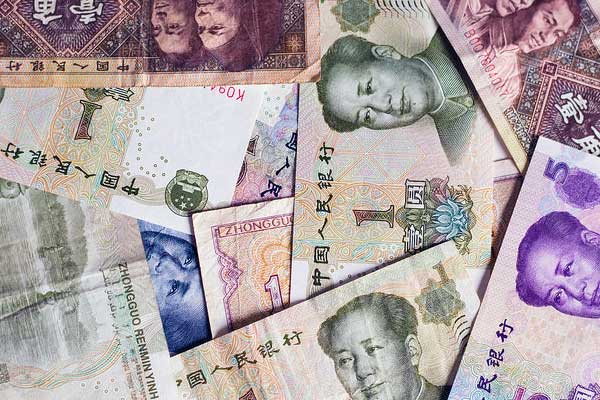
China's currency devaluation: U of T economist examines biggest two-day slide in 20 years
Published: August 12, 2015
A move by China to devalue its currency for the second day in a row has grabbed headlines and roiled stock markets around the world.
But University of Toronto economics professor Loren Brandt says the decline in the exchange rate of the renminbi (RMB) relative to the US dollar should be considered in the context of the declining rate of growth in the Chinese economy and the behaviour of other currencies. And he adds the devaluation shouldn’t come as a surprise as the RMB may actually be over-valued.
Brandt, who specializes in the Chinese economy, spoke to U of T News writer Michael Kennedy about what’s behind the move to devalue the RMB and the implications it could have for the rest of the world.
Why did China devalue its currency for the second day in a row?
The devaluation reflects continued weakness in the Chinese economy. As a result of the huge run-up in the debt/GDP ratio after 2008, China continues to deleverage, with predictable effects on the growth of both consumption and investment spending. Policy makers are hoping to offset weak domestic demand with an increase in external demand.
The decline in the exchange rate also needs to be viewed in the context of the behaviour of other currencies, including the Canadian dollar and Euro, both of which have depreciated considerably relative to US dollar (the Canadian dollar dropped approximately 25 per cent while the Euro fell about 10 per cent). Over the same period, the RMB declined only modestly relative to the USD, implying that it appreciated relative to the other two.
Given the fundamental weakness in the Chinese economy, the question in my mind was not so much will the RMB be devalued, but rather, when will it be devalued. How far this goes is hard to say, but weak fundamentals in the Chinese economy suggest a currency that may actually be over-valued at the moment.
How will international markets react?
International markets can be highly fickle; just look at their behaviour in the aftermath of the sharp decline in Chinese equity markets earlier this summer. This decline should not be unexpected. Much harder to interpret is whether the current behaviour of the RMB presages a new era of the RMB, and how it is determined.
What does this mean for Canada?
The Canadian dollar depreciated significantly against the RMB over the last nine months as the Canadian dollar declined in value relative to the USD and the exchange rate between the USD and RMB moved only slightly. The devaluation of the RMB the last few days has only offset a small part of that.
For the Canadian resource sector, this will make its exports to China slightly more expensive, but the impact is small compared to the decline in demand resulting from the sharply falling growth in the Chinese economy over the last two years.
What are the risks for China in taking this move?
The risks associated with allowing the exchange rate to fall are not big. A case can be made that the exchange rate should fall in line with weakening fundamentals.
The more serious concern is that this is one of a series of ad hoc interventions that do not do much to put the economy on a sounder footing for the long run. The heavy-handed interventions in the equity markets in China the last month or so do not do much to help allay some of these concerns. Time will tell if the devaluation is part of a shift to a more market-determined exchange rate and less government intervention, or to ad hoc policy adjustments that may have small, short-run benefits but, in the long run, are very costly.



